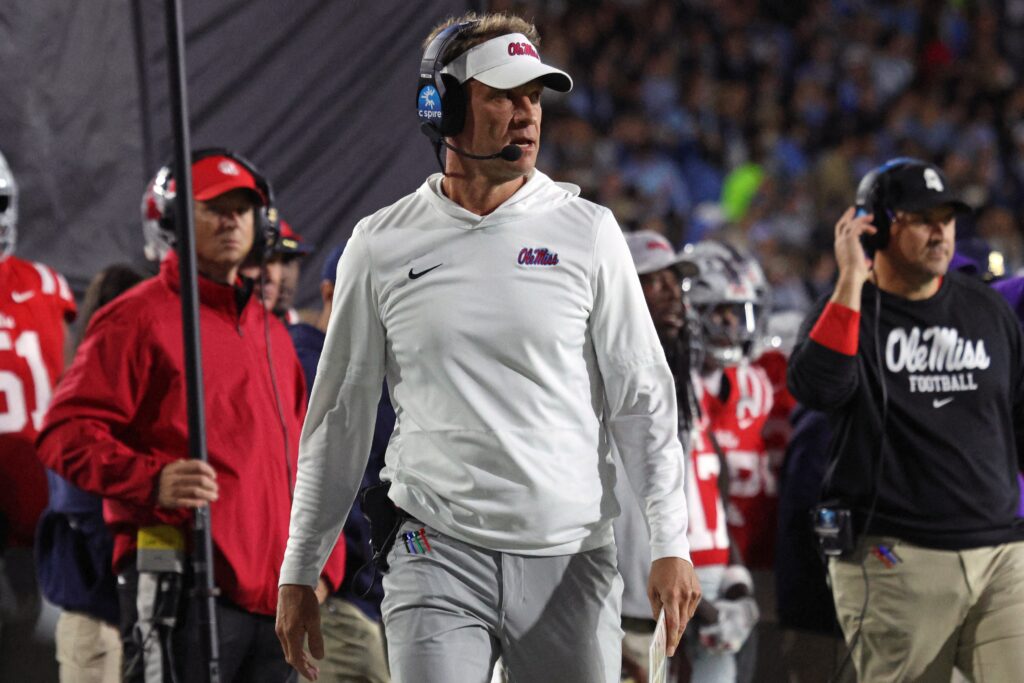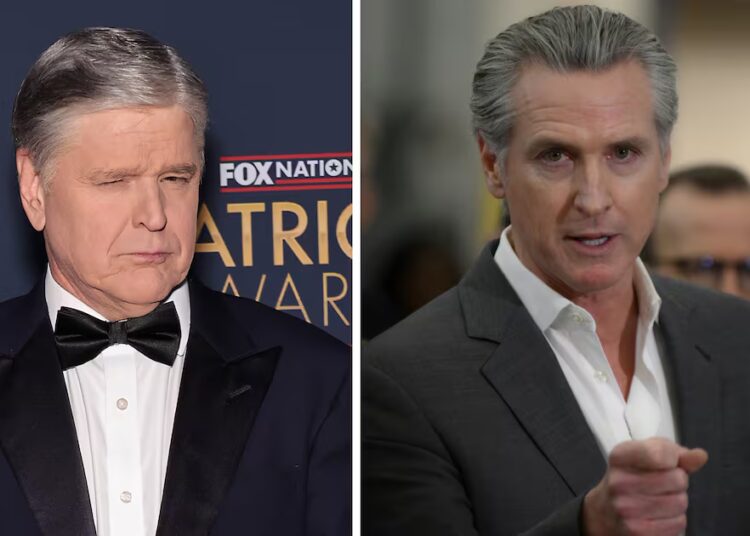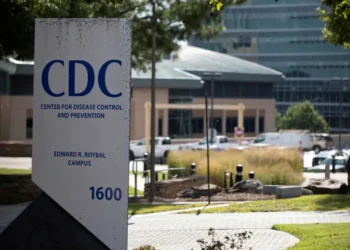There’s a decent chance that, by the time you read this, the final act of Mississippi Coach Lane Kiffin’s will-he-or-won’t-he saga will be reaching its endgame. There’s also a strong chance the specific silliness of this kind of coaching circus won’t ever raise its tents again.
Kiffin is heading to Gainesville to take over at Florida, going to Baton Rouge to rebuild LSU or rebuking both of those SEC stalwarts to stay at Mississippi and coach the Rebels through this season’s College Football Playoff and beyond.
That any coach would deliberate a choice between a program such as Mississippi — nationally irrelevant since integration — and brand names such as Florida and LSU can be interpreted in one of two ways.
The Sports Moment newsletter: Reporter Ava Wallace takes you through the buzziest, most engaging sports stories of the week. Sign up for the weekly newsletterhttps://t.co/WmrlnLPBpp
— Post Sports (@PostSports) October 16, 2025
Kiffin, arguably the most fully realized character in football coaching history, would have us believe his prowess as a play-calling savant and program CEO is the reason the 10-1 Rebels keep company with national title winners and are poised to make their first playoff run. When you apply college football’s yesteryear metrics, Kiffin’s 54-19 record through six seasons stands as a paean to his genius because, for decades, the sport has relied upon the mythos of head coaches as almost absolute sources of success or failure.
If the team is winning, it’s the coach’s brilliance on display. If it isn’t, fire him. Right? Maybe. It might also be the players — and how you pay them.
Although the data around the alternative theory is still in its infancy, it’s picking up popularity around the sport: Kiffin’s ability notwithstanding, the alignment and foresight of little Ole Miss might be far more of a factor in the program’s success than its media-sponging figurehead. In short, Mississippi has conducted a master class in player compensation through name, image and likeness (NIL), while schools with bigger buildings and brighter banners have flailed in the dawn of college football’s next era.
Many in the industry seem to agree the Rebels’ success extends far past Kiffin’s smirk, and programs such as Auburn, LSU and Florida have made overtures to Walker Jones, executive director of the Grove Collective, which runs Mississippi’s NIL efforts. Jones, a former Rebels player who is extremely close with the Manning family, is the fundraising name that catches headlines, but far beyond his efforts are the various wallets and bank accounts of myriad Rebels alumni pumping cash into Mississippi sports, namely football and basketball.
And while specific figures on NIL budgets and payrolls are still alarmingly opaque, insiders point to Mississippi as being particularly effective at identifying transfer talent, executing NIL offers and managing roster concerns, far better than their big-brother conference rivals. LSU under the recently fired Brian Kelly, for example, initially adopted a flat-payment system for each football player, regardless of position, talent or accomplishment.
That drew laughs at Mississippi, an athletic program famously familiar with compensating its athletes long before it was permissible by the NCAA, and the current millennial class of Rebels boosters has aligned to attempt to spend the brand out of its historic woes related to economics, racial strife and, most relevant to this week, its second-class stature in the SEC.
When you strip the layers of PR and overexposure (most recently, ESPN barfed up an entire faux-documentary about Kiffin’s social media use), Lane’s sterling run at Mississippi aligns neatly with the advent of player compensation via NIL.
How much of a coincidence that feels like probably depends on your age and embrace of college football traditions. Boomers still want to believe in statue-building, whereas a younger generation of fans (and boosters) is starting to embrace success by committee. Is Kiffin a gifted play caller? Absolutely. Can you replicate that in the aggregate? Absolutely. Missouri Coach Eli Drinkwitz, another candidate at Florida and LSU, boasts a similar offensive mindset. But what he has lacked during his 45-27 run in Columbia (other than Kiffin’s ceaseless attention-seeking) is a payroll apparatus like the one in Oxford.
After all, despite the active pursuit for his services, Kiffin has never won a division, conference or national title at any of his stops, and he flamed out wildly in the NFL, even by Raiders standards. Would Mississippi be better with him at the helm in 2026 than with any likely replacement? Almost certainly. But Kiffin might also be best positioned for success if he is still Instragramming his hot yoga sessions from Oxford next August, rather than somewhere else.
Lost in the frenzy of this Kiffin-designed, Kiffin-centric news cycle is the context of how Florida and LSU got here in the first place. Both schools cast long shadows over Mississippi’s alumni base, state economy and branding, but they’re frantically wooing Kiffin because things have gone disastrously wrong in spite of those advantages.
After Louisiana Gov. Jeff Landry (R) took control of LSU athletics by dismissing Kelly and athletic director Scott Woodward in a frenzied, amateurish series of meetings and news conferences, LSU football is caught in a fiercely dysfunctional power vacuum with no clear leadership strategy in the short or long term. The school offered up longtime athletics staffer Verge Ausberry as an interim-ish AD, despite his involvement in a Title IX scandal. No one in the industry believes Ausberry is long for his role.
In Gainesville, former coach Billy Napier managed to scrape a few decades of institutional torpor off Gators football before his firing by recruiting a highly talented roster, but the program is still far behind in NIL strategy and plagued by a fast-aging belief that its geography alone can compensate for a lack of innovation (unless you count Napier’s propensity for procedural penalties as some kind of strategy disruption).
While rivals spent decades building, buying or recruiting more than Florida, the Gators assumed their position as the flagship school of one of the nation’s most talent-rich football states would suffice. Despite evidence of this misstep in recent years, Florida boosters’ mindsets still differ wildly from the drive and desperation of the historic have-nots at Mississippi.
Coaches will always command an outsize relevance in the public domain of college football, largely because old habits die hard and America is far too uncomfortable with affording a labor class any real agency. But NIL has forced us to reevaluate.
Is it possible Kiffin could energize generations of Gators to get with the times and modernize their mindset? Over a long enough timeline, maybe. But Florida’s impatience is at all-time lows as rival Georgia has ascended to national dominance, and any program in the Sunshine State demands dedication to high school recruiting, something the portal-friendly Kiffin is remarkably mediocre with.
Is it possible Kiffin can win fast enough in Baton Rouge to beat back a sitting governor while also managing up with a to-be-determined leadership structure? Sure, but that kind of diplomacy requires a level of patience and offseason dedication that Kiffin normally devotes to deep-sea fishing and tweeting inspirational quotes.
Kiffin’s entire public persona is a perpetual begging for attention, yet the more one focuses on his total personality and his complete body of work, the less suited he seems for anywhere other than the one place desperate enough to wholeheartedly indulge him. Press on that logic even more, and you start to wonder whether, in a decade or so, we’ll look back with improved knowledge about the efficacy of coaching in the player-payment era and realize the desperation born of Mississippi’s failings fueled the real asset that brought Mississippi to this point: money, lots of it, moving in one direction.
The post SEC rivals want Lane Kiffin. They should want Mississippi’s boosters. appeared first on Washington Post.




